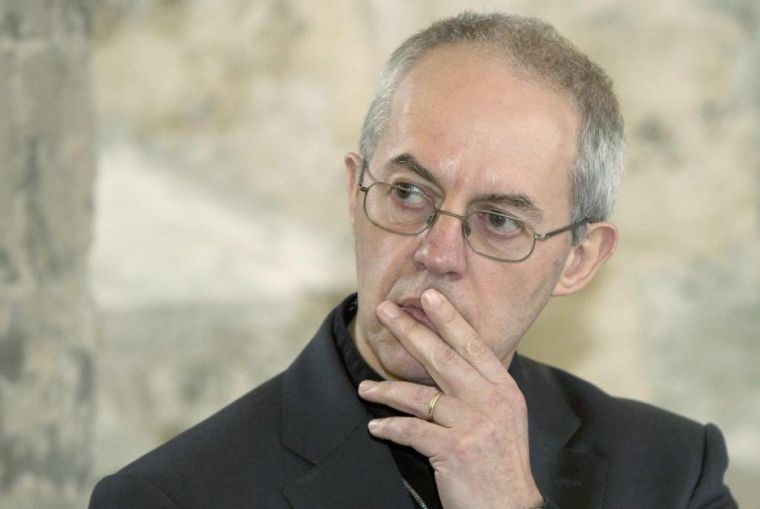Primates hit out at conservative plot for rival Anglican church
Senior bishops have hit out at moves from some rebel conservatives to launch rival Anglican structures, accusing them of subverting the authority of the Church.
The heads of 33 Anglican provinces around the world met in Canterbury this week and called for a 'season of repentance and renewal' following a spate of 'cross-border interventions'.

Although the Archbishop of Canterbury refused to name individuals it will be seen as a criticism of GAFCON, a conservative grouping that earlier this year consecrated Andy Lines as a 'missionary bishop' for the UK and Europe.
'Persistent and deliberate non-consensual cross-border activity breaks trust and weakens our communion,' the primates said in a comminque at the end of the week-long gathering.
'We recognised that there is a need for a season of repentance and renewal including where interventions may have happened without prior permission having being sought.'
Justin Welby said instances happened all over the world and undermined the authority of local church leaders. He said they had been recognised since the fourth century as causing 'demoralisation, division and a loss of impetus in the life of the church'.
Welby told reporters at a press conference: 'Jesus created the church to be one so that the world might know that he came from God.
'That is really really crucial. Failure to do that is a cause of repentance.'
Despite deep divisions over issues such as sexuality, the primates representing 33 of the 39 provinces across the worldwide Anglican Communion in Canterbury put on a display of unity to condemn the interventions, despite a number of leaders affiliating themselves to GAFCON being present.
The Archbishop of Kenya, Jackson Ole Sapit who is a member of the GAFCON primates' council, called on his fellow conservatives 'constructively engage' after three refused to attend in protest at what they see as a liberalising trend in the Anglican Communion.
In an interview with Christian Today earlier in the week he said: 'There are a whole range of areas that the Church is doing beautifully in and it can do even more when it is strong, when it is united because you can have a stronger voice than when we are disintegrated.'
He added: 'We can influence society, we can be able to able to influence decisions, even internationally, when we are together.
'But divided we shall be weak.'
The bulk of the week focused on issues such as refugees, religious persecution and climate change. The Archbishop of Canterbury declared 'business as usual' as the talks mainly focused on issues other than sexuality which, he said, 'has not been the case for 20 years'. He admitted to feeling apprehensive before the week, anticipating fractious debate but said the primates had 'arrived feeling beleagured and left feeling uplifted'.
The Archbishop of Hong Kong, Paul Kwong, who has attended the previous five meetings, said it was the best he had ever been to not because everyone agreed but because everyone was committed to walking together.
An interfaith commission to work with religious leaders around the world was also launched as the primates said: 'The world has never felt the need of a Saviour more keenly.'
Archbishop Josiah Idowu-Fearon, secretary general of the Anglican Communion, said the purpose was to work particularly where Christians are persecuted.
The Archbishop of Kenya also particularly focused on the role of women, detailing how his wife was viewed as 'mama Kenya' and regarded as a leader despite never benefitting from the education or training he had received.
The Archbishop of Canterbury's wife, Caroline Welby, is planning a series of trips to help train women around the Communion.











